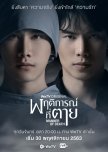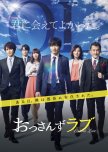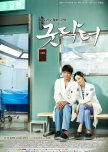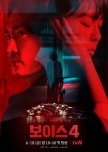
Medical dramedy done right
I don't watch dramas when they're airing. The wait for the next episode is too much. But Dr. Cha makes it easier to bear, worth the wait infact. With her kind words and smiles and overall adorableness.Contrasting her is her husband Seo In Ho who clearly does not deserve her. Competing with him (nearly) is Roy Kim who is literally The Standard (TM). There is the other woman in Sung Hee. The kids, Jung Min, I Rang, Eun Seo and the grandmothers form the main cast around whom the story revolves.
Dr. Cha has everything going for it- good music, cast, performances, plot and emotions. The themes around which it revolves are extremely well done- starting over, self discovery, midlife crisis, a tiny bit of medicine, affair and its problems that are not just jealousy, etc. The characterisation is wonderful as well. However, the screenplay is bizzare in a few segments and some directional faults are obvious.
Right from around 4th or 5th ep, there was a feeling that the show wouldn't end like I want it to; one which is solidifying as more episodes unfold. But Dr. Cha can also dole out good surprises so for now, I'll keep my hopes on that.
Vond je deze recentie nuttig?

Unsung heroes
This is the kind of school drama we (or at least I) needed. Black dog, the dog that no one adopts at the shelter, or the dog that is left behind, or the dog that is unnoticed (I nearly cried at that close up shot of the little puppy). It's the dog that silently waits to be recognised. Much like the teachers at schools who struggle behind the scenes to make the magic that is a school year (senior year, in particular), work. So maybe, Black Dog is more a workplace drama but irrespective of the name or genre, it is the heartwarming story of one Go Ha Neul and her life as a teacher at Daechi High.It's not just her who is the Black Dog, though. It's all of the College Advisory department- the loud and gruff Park Seong Soon, kind and perceptive Bae Myung Soo and the charismatic Do Yeon Woo. It's also Ji Hae Won who's been under contract with the school for six years and those who are permanent fixtures at the school. Black Dog is their story. It centres around teachers and tells their story- stories that are unheard of by the walls of the school.
By showing teaching in a new light it prompts us to think. How many of us knew what happened behind the screen in the staff rooms and departments? As students, our only perspective of those who teach was as a teacher- a homeroom teacher, a maths teacher or a social sciences teacher. Beyond that they were also as human as any of us with likes and dislikes, dreams and aspirations. Even excluding those, it’s probably not as easy to be a teacher as they all make it seem.
Case in point, Go Ha Neul, who struggles from day 1 to be the kind of teacher she saw as a student and realising it’s not as easy or rosy as she thought. She is new and a bit naive but is worldly enough to accept the challenge and face it head on. My most favourite moment of her will be when she realises that teachers can be wrong as well. Seo Hyun Jin, whom I’ve long disliked, aces the role so well that she might have as well been Go Ha Neul her whole life.
Go Ha Neul’s relationships with those around her also deserve a special mention, though these pertain more to her character than to the story. Be it her open adoration of Seong Soon, or her camaraderie with Myung Soo, Yeon Woo, Yi Boon and her students, or her guilt-ridden gratitude and friendship with Young Sook, there is an earnestness that’s endearing and inspiring. Her perseverance, determination and effort are laudable. And when she exchanges couple-teddy bears with her favourite person, it’s just plain adorable.
Black Dog’s biggest strengths are its characters- they are flawed, and hence relatable. The world doesn’t just have teachers like those in the College Advisory team. There are people like Song Young Tae, Han Jae Hee and Ha Soo Hyun as well. Likewise, there are students who are unlike Goo Jae Hyun or Jin Yoo Ra. Black Dog makes an effort to include all these little things and incorporates them fittingly into the storyline. The back and forth storytelling narrative also keeps things from becoming boring.
Black Dog wouldn’t have been possible without the stellar performances of its cast. They are all natural and in their element. There is no romance, but plenty of chemistry and honestly, Myung Soo’s suggestion in the final episode should have been given much earlier. The music, clothing, colour palette and cinematography all contribute together to the gentle and soothing feel the drama aims to give. The twinkle in Ha Neul’s eyes every time she’s happy is just the cherry on top of everything.
Vond je deze recentie nuttig?

Colossal mess
Reasons for a 5.5 (the lowest I ever rated a drama):1. Spoiling a good premise
2. Mishandling of well set characters
3. Ruining first season
Reasons this still gets a 5.5:
1. Mark & Kit
2. Kimmon & Copter
P'Pa singlehandedly upsets the delicate balance on which several friendships and relationships were loosely hanging on by and that is pretty much the entire story. 4 eps or so in, the focus that was equally distributed on all 3 couples tilts completely onto Wayu and Thanu, whose plotline is sedative at best and a melodrama at worst. Everyone around them knows how their relationship ought to and ought not to be and why and watching the few romantic scenes they do have between them is just a painful cringe. The situations change and the dialogues are slightly tweaked but it's pretty much the same- Wayu is uncharacteristically confused and muddle headed and Thanu is going to quietly wait until Wayu comes around. We understood that the first time, can we move onto something else now?
Problem is, GenY2 tried its best to present realistic issues that may arise in relationships in a very unrealistic way, not to mention said issues are resolved improperly at best and incompletely at worst. Long distancing, dealing with the exes of past in the present, the difference between the love we give/want to give and what actually the other person needs, the respect that exists in the relationships, meddling third parties...are an interesting set of obstacles one may encounter and thus make for good story elements. But what use are good ingredients when the cooking is a disaster? We are not even talking about Destiny and Fate that were needlessly incorporated into the story in S1. Why have the hide and seek happen and visions of a possible future unfold only to refute the concept of Destiny and its role in love 12 eps later? But then, what about Thanu and Wayu whose story and journey together is an antithesis of the moral GenY2 perpetuates? Furthermore, Sandee, Phai and Padbok are given endings that make one go, "That's it? That's the reason?", making their entire arcs meaningless. Likewise, P'Pa is an unnecessary character if all we are going to get as a reason for him abandoning Wayu is that. 'I don't love you anymore, this is not working for me' is a much better reason.
Wayu and Thanu take up so much of the storytelling that the others don't get their due, Pok and Tong taking the brunt of this damage. Mark-Kit manage to have an exclusive spot for themselves but what little they have is complicated by their (irrational) decision regarding Kit's scholarship. Jack-Ko are necessary (and welcome) comic interludes but Sandee's small crush on Phai is never addressed. It's a pity that everyone except Wayu-Thanu had so much to offer but we see so less of them. Ever since S1, I've had the feeling that Wayu-Thanu were supposed to be the "mature, soft and gentle couple", Mark-Kit, the "cute and playful couple" and Pok-Tong, the "hot, messy, teen couple" and S2 reinforced my belief. But there is a way to show "mature, soft and gentle" and this is not it. The actors are good, except Dun, who needs to improve. Gen Y2 is something that needs fast forwarding even when you're watching it on 1.5x or 2x mode. That says everything about the mess of a drama it is.
Vond je deze recentie nuttig?

Deadly Tales
Thai BLs are known for their diversity in setting up their stories. We can find almost no two dramas alike. The characterisation is unique to each show as well. Clearly this was sarcasm and anyone who's watched Thai BL shows has already figured it out. We have the few rare exceptions like A Tale of Thousand Stars, but experimenting with the genre of crime thriller in BL, a world that has been predominantly romantic so far, is a new and fresh take that is really unique.In that sense, MoD has much to offer. Once unraveled, the plot is relatively simple despite how convoluted it initially appears to be. It's this simplicity that's brilliant- the motivations of the characters that caused them to act the way they did, the manipulations, the betrayals, losses and the subtle gore are all well written. At no point of time does the show attempt to gloss over the gruesome parts; it confronts them head on and incorporates them into its core. Much like the Voice series, there is no shying away from the depiction of evil in its barest form. It is a particularly commendable effort.
Contrasting these heavy themes is the sizzling hot romance of Bun and Tan that is excellently brought to life by the insane chemistry of Max and Tul. There is the equally cute side pair of That and Sorn which is just as pleasing to watch, butterflies in stomach included. There is a blink-and-miss moment between a third pair as well towards the end of the series and honestly, I want to see more of them.
To watch MoD, however, we need to set aside certain basic standards of logic and reasoning, in fields of both medicine and law, that we have grown accustomed to. Townspeople don't appear in the show again after that brief stint at the beginning. The hospital neither looks like one nor has any significant number of staff or patients or doctors. Even if I'm not a native of Thai, coming from the medical field, I do have a small amount of medicolegal knowledge that felt challenged at every episode- like how a police personnel is not present during autopsy. The investigation of the murders, or what we should understand as one, feels incomplete and inadequate. It's as if everyone forgot fingerprints or GPS tracking existed. Even the media, when it is called in as a plot device, is hardly more than an announcement heard over mobile phones. There are several other loop holes (the villains failing to catch the leads despite having force at hand) and lose ends (the mysterious second memory card) that remain unexplained.
The problem is, all these avoidable mistakes decrease the credibility of a well written story. It was sometimes quite challenging to sit through the forty minute ordeal. Yet, none of the scenes could reasonably be called fillers. So what was the issue? The poor amalgamation of the various intersecting story lines. Until That and Sorn became involved in the crux of the plot, they were barely just more than extras. Romance runs parallelly and is often abrupt. The car scenes didn't appear to be filmed properly. On the whole, it gives the appearance of a haphazardly patched up cloth of rags that is torn at best and missing at worst. The story frankly deserved better treatment.
Characterisation was not bad but there was an overabundance in some characters and a glaring lack in others. Bun is the multitasker of the show. He is firstly a medical examiner who doubles up as an emergency doctor performing surgeries (without proper equipment) if the need arises. He investigates the case on his own on the side and at home, he is a chef. Tan pales in comparison, having nothing next to a protective instinct towards Bun and a sad past to back him. He could have been a little more twisted for how grey he was. On the other side, the mastermind behind everything is shown to be far more evil than the perps who actually did the deed. They are equally bad and should have been shown as such. Similarly, Inspector M was an interesting character who deserved more depth than he was served.
One of the best things the show gets right is also, ironically, the character dynamics. The single straight relationship in the show is unequal and imbalanced. Por, Pued and Tan and Rung and Jane represent textbook definitions of toxic relationships. They are crafted well and the tension amongst them is brilliantly utilised and portrayed. I'm pretty sure I've never seen a more despicable character than the villain here and that I will continue to despise them even if I re-watch the series later, is a testament to how perfectly sketched they are.
The background score is suitable and the soundtrack is good. Cinematography could have been better, especially of the hospital segments. All actors give decent performances but Max and Tul often appeared somewhat restricted. Bhu, Putter and Great were comparatively free in their expressions. Overall production value seems low but is not as off putting. At 14 episodes, the story felt drawn out, only coming together towards the end, in around 3-4 episodes. I would recommend it solely for its unapologetic portrayal of the Bad but I'm not going to re-watch this show.
Manner of Death deserves every applause for exploring dark themes and is a hit or miss, depending on the audience's taste. If only it was tighter in all the places it is weak!
Vond je deze recentie nuttig?

Potential Imbalance
An anti hero with a mafia background goes back to his homeland to retrieve the secret stash of gold buried there after the owner dies. There he encounters a series of unforeseen problems, gets dragged into a war against a conglomerate and learns that there are more secrets than he had been made aware of. It's a fantastic foundation to base a story on. We can see that it has deadly potential to give us one of the best dramas of the year. But sadly, that is what it remains- a foundation- which is why it feels more disappointing than the average series that failed to deliver.The plot is pretty straight forward for a touted thriller- but the back and forth screenplay keeps the viewers guessing. If you've watched enough movies/dramas, you wouldn't find the plot unpredictable. There are the usual betrayals, the chases, the comebacks, the one-upmanship, the cat and mouse game and the intermediate comic relief. But there are also a lot of unnecessary scenes and half baked elements that were mixed in as well. It could be because they all were originally a part of the script or because they had to fill the entire stretch of 20 episodes with something. In other words, this is not a racy or nail biting thriller. Truthfully, this is more an action drama.
The writer-director duo tries to overcome the hurdle of "too many episodes with too little story" with humour and fall flat face first onto the ground. That they respectively worked on Chief Kim and The Crowned Clown is another example of wasted potential- they could have turned the tables and made this better at any point of time during the show! The slapstick comedy feels forced, dispensable and boring. They could have totally done away with them and placed some actual courtroom scenes, seeing that the series' main characters are lawyers. The glaring lack of court scenes is rather conspicuous. The action sequences are nothing new either. I wouldn't call any of the plot twists shocking - I saw them coming from a mile away. Barring the first three episodes, the first half is long and uninteresting and the finale ends up being meaningless in its attempt to be a "desperate-last resort" action. Also, why all the last minute gore and torture?
The beauty of Vincenzo is that it is engaging in spite of everything. It is visually pleasing even if a majority of the incidents happen in an old building that actually requires the redevelopment that it vehemently opposes. For all the right reasons, yes, but it needs to be mentioned. The story picks up in the second half and the show delivers then what it had been storing all along. It feels like a fresh breath of air to see the plot take the reins and run the show, to drive its characters into their respective positions and make them do what they were brought in to do. The characters feel more grounded, as if they are a part of the story rather than in the beginning when they felt out of place with visibly forced acting. This overall improvement is backed by some solid performances from all the actors, with Ok Taec Yeon and Kwak Dong Yeon standing out. I think if Vincenzo did one thing good, it is that it brought out the versatility of these two.
It took me a while to accept the chocolate boy looks of Song Joong Ki as a feared and ruthless Consigliere and I was never fully convinced he could do it. But he does it, and although he didn't look threatening at any point, it's more on the plot. He provides a lot of gravitas to the character of Vincenzo that even the script fails to provide, ironically. He was a treat to watch. Did I say his Italian is sexy?
Jeon Yeo Been emotes well. She portrays the antics of her character without being over the top, right from the scene where she is introduced to us. In my opinion, we needed more of her extras and less of the unpalatable comedy that was thrust in our face. I was never sold on the chemistry between the leads and the romance is light, breezy, and blink-and-miss.
Kim Yeo Jin is brilliant as Choi Myung Hee in what is one of the few best written characters of the show. Kim Yoon Hye as Seo Mi Ri is another. Music and cinematography are the other plus points.
The major pitfall of the show is its imbalance in the construction and execution of the plot and the inconsistency in the characterisation. I got tired of how easily and quickly the residents of the plaza changed their stances. Hong Cha Young's fire and extras in the first three episodes vanish abruptly and she becomes yet another woman who needs rescuing towards the end. The character of Jang Han Seok was only saved from being a weakness that could drag the story down by Ok Taec Yeon's incredible work because he loses his spark midway as well. It's as if after his reveal as the Chairman of Babel he had no more cards left to play. All Han Seok did in the second half is just a response to Vincenzo's advances. Han Seung Hyuk was the most unstable of the lot and it was difficult to predict what he'd do next- in a way that's more irritating than it is exciting. This uncertain characterisation and a plot that doesn't tie up its lose ends (starting scene? Vincenzo's dreams? How did he get into Han Seok's house? Why did one of Myung Hee's lackeys return to her?) adding in comedy for fillers create a sense of imbalance. Several scenes and episodes feel disjointed. At times, the scene transition is not smooth and the music cuts off suddenly. It feels like a poorly patched up broken vase when the vase was never broken in the first place; just a little messy.
So would I watch it again? Probably not. Would I recommend it? Yes, the actors are amazing, go fall in love with them. Should you watch it? Yes, if a slightly wonky mafia story is your bowl of corn salad.
Vond je deze recentie nuttig?

Parody or Satire?
I'd like to give a fair warning here that I'm coming to Ossan's love after a marathon of Pornographer series so I might have gone into the series with some lingering elements from there. I'm trying to be as unbiased as I can. At 7 episodes, Ossan's love seemed an easy rainy day watch but the story managed to get problematic by the 4th ep. And that's not even because the story seemed to lack a direction. We've seen shows go berserk before setting themselves on the track, or have the berserk happen for a reason, but OL falls under neither category. It was probably my mistake for expecting the breaking point to come mid season and then thinking the remaining episodes would be "heal".Sadly, no.
A large part of it was because of the characterisation of Haruta. He was depicted to be capable professionally but an utter disaster in every other aspect. It's an interesting prologue to the main character. But, he is inconsistent. It's not just his house and life that he needs to get together and that shows, all the way till the last episode. (If the duration of the show was any longer, it would have been a frustrating melodrama so I'm glad the show ended when it did). Haruta, at 33, is in emergent need of a complete makeover of his psyche, of his understanding of himself. While his kindness was intelligently portrayed to be a stumbling block in his self discovery, it was not convincing enough. After a point, it became difficult to say if Haruta had a problem coming out or accepting his feelings, or even realising he had those feelings in the first place and what those feelings meant, thereby making it hard to empathise with him in spite of the initial laughter his confusion elicited. Even towards the end, I had to wonder what changed in him and why he did what he did. I'm already half convinced if the other person hadn't given up, Haruta would have just gone along with the flow. Frankly, it looked like the coming out Haruta needed was him being an indecisive Aro/Ace ass. His sexuality aside, I wish the writers worked on him more. I wish more detail went into creating his character than the various theatrical expressions he gives. The actor makes brilliant faces, no doubt, but that's not what he's here to do?
This is not to say that the show wasn't good. There is a decent amount of well placed situational humour that will crack you up until your sides hurt. The dance at the end was memorable. The setting is convenient and suitable to the story. I wouldn't exactly say that midlife crisis was addressed but it was probably there in the subtext for us to figure out. The three statements that redeem the show somewhat are:
What is love?
What is marriage?
Love is not such a neat thing.
However, the questions remain unanswered, both for good and bad- good, because most of us don't know the answers ourselves, and bad because it complicates an already complex plot, unnecessarily. Another good thing is that, the story bares open how love changes over time- as the chief's wife explains to Maro, who is my favourite character in the show. He is consistent, mature, and has a clear growth curve, be it when he advices Chizu or when he pursues Choko. Maki is equally amazing and stuns us with his clarity in an otherwise ambiguous story. The actors who play them are excellent too.
Secondly, Chizu's entire storyline was half baked and way too typical. She enjoys Haruta's attention and repeatedly rejects him but begins to covet him when he gives up. I'm not even going to talk about how unfair she was in her brief relationship. She's selfish and about as stable as Haruta. They are two peas in a pod. The difference is Haruta knows he's self destructive. Chizu doesn't and doesn't even realise until much later. The only sensible female character was Maika-san and I rooted for her from the beginning till the end.
My third point of discontent will be the chief. Oh where to begin with him! He's a can of worms that is better left unopened and untouched. His obsession with Haruta is downright creepy and borderline stalkerish and the reason for his love is never explained. Yes, love doesn't need explanations, but I demand some when one minute he's celebrating his anniversary and the next he's thinking of Haruta. Additionally, there were never any indications that his marriage was unsteady or unhappy. I also have to wonder if in all his years of married life he ever heard of "consent". Right from the beginning, he's always seen doing what he wants- be it liking someone or giving up someone. It's always his call when it comes to his relationships. And that he calls "love"? What kind of proposal was it anyway? It was eerily similar to Mr. Darcy's for Lizzy and bizzare to the extent that even Haruta notes that the word "crazy" appears often. Also, was he never taught the meaning of "No"? Here, his wife needs to be given special applause for encouraging her husband and wishing for his happiness so much that she helps formulate the plan to grab Haruta. Wasn't this stereotyping wives as sacrificing for the sake of their husbands? And where is her sense of self?
Which is why I'd like an answer to my question- was this show a satire or a parody?
Vond je deze recentie nuttig?

No dream is too small or big
This review will be my thoughts during the movie in order:1. PSJ! How long has it been since I saw him! How amazing it feels that he's back!
2. IU! Quirky and no-nonsense. Her role felt smaller but IU gives the character its own life and personality through her incredible acting.
3. The backgrounds of all the characters are duly established without interrupting the flow of the story.
4. There are good laughs as well through the team's bickering. Their bond and brotherhood is well portrayed. When they all come together to help Yoon Hong Dae, it's a laugh riot. "Why are you telling that to my thing?" I had to pause and laugh at that.
5. However, the plot feels quite formulaic, the narration is routine and the characterisation of the two mains lacks more depth.
6. But that's just a little downside. The film achieves all its objectives: 1. It makes a statement about the homeless and addresses the main argument against them- the smell and their untidyness. 2. This is the second PSJ outing to have a queer character (if I'm not wrong). There's not as much focus on him but what's important here is the others' reaction to the character's confession.
7. Thirdly, it defines a dream and justifies the title. The climax is very satisfying. The single most original plot point of the story and it is delivered with a resounding goal.
8. I think if we look closer, it also speaks of how we are all ultimately made and broken by fellow humans.
9. The film can be rewatched, if one can bear with the customary screenplay. The music is good and hummable.
A dream is any hope we foster to go on with our days. It could be of a daughter wanting to spend time with her father, a father repenting his past, an athlete tiding through the tough times of his life, a companionship between an unlikely pair or a young man's desperate search for a friend. No dream is too big or small.
This is not a story of underdogs beating the table-toppers to clinch glory. This is a celebration of normal humans, their ordinary dreams and their extrordinary perseverence. That is its beauty.
Vond je deze recentie nuttig?

Good actors maketh not a good show without good execution of the story.
The graph of my interest in this show will definitely resemble the cracks left by an earthquake if I ever plotted it. So why/how did I finish 40 episodes? Because this show is strangely addictive. Even if you want to bash your head or pull your hair out for forty minutes, you are eager to see what happens next (no matter how cliché or absurd you know it's going to be) and that is this drama's strength. And that comes from the marvelous performances of the cast, who make you believe in their emotions when the story doesn't. Because the story doesn't do anything here. The only one holding all the cards is the writer/director and we see the scenes they wish to show us, how they show us and when they want to show us. That is this drama's downfall. Maybe the three directors took a thread of the story each and went their way with them and faltered when it came to tying them all up. Add in poor screenplay and editing and this is a recipe for disaster waiting to happen.Yet, the story is engaging. The main plot is scattered in pieces somewhere in between all the mess that happens but manages to take an integral part in the episode so it doesn't feel like we are wavering away from what we embarked on. The cases could have been better written or at least better presented. They often began in the last one third of an episode and continued till the first one third of another. I can't reason out why, unless it was dole out some cliffhangers and make the audience wait. Well, it worked. Episodes 10-20 are easily the best in the show. Midway through, you can take guesses at how each character's ending is going to be so it's not that shocking when the end does arrive. There are heaps of things we could have done without, though.
The actors are all amazing and the characterisation is one of the few good things, be it the two leads, SID, the humans or the Dixing-ians. I like how everyone has their quirks unrelated to the job they do. Those at SID are well sketched, but not well shown. In that respect, Zhu Hong, Sang Zan and Wang Zheng are the weakest. They appear when the directors want them to appear instead of always being a part of the group even if it's just standing in the background. Wang Zheng's story was drawn out a bit too much, and the Crow tribe leader's too little. Still, everyone is given a chance to tell their story and that keeps the plot going when the writers have used up their repertoire of cases.
Music is good and I'll only re-watch the edited portions of the two main leads for their sparkling chemistry. It's there right from the moment they first make eye contact with each other and I rewinded plenty of their sweet scenes to gush over them. This was a BL despite the lack of explicit or implicit words of romance between the leads and despite the love triangle they tried to build. I mean, if someone did for me what Shen Wei does for Yun Lan, he is definitely going to be tied to me for the next seven births as well. Shen Wei is open but silent about his feelings and Yun Lan openly and silently enjoys all the teasing he gets. Their love for each other is scattered in the story just like the plot has been. However, I'm disappointed that some of the most emotionally charged scenes are haphazardly placed at the end, which in itself is a mess.
In a nutshell, this show left me wanting for some actual BL scenes so much that I watched two others in succession but I still remember how the cat behaves like a cat even in his human form and how Guardian was reminiscent of a bad cross between Power Rangers and Supernatural. It's worth watching for the two leads, though.
Vond je deze recentie nuttig?

Not a regular medical drama
It's not until the end that the answer to the question, 'Who is a good doctor?' is answered, and for a reason. Nobody at Sungwon University Hospital knows or is capable of answering it and it shows. We're thrust into the life of Park Si On, an autistic genius, as soon as the curtains open and go on the journey with him as he tries to make a name and place for himself at the hospital. The journey is as tough as it gets in the beginning and for a long part of the first half we are left fuming and sad at the state of affairs. Each of the incidents however, contribute to the growth curve of Si On and help establish the other characters well. Some can be easily slotted into good and bad while some waver in the middle. Unfortunately, but not unexpectedly, a lot of Si On's teammates don't come around easily. It's interesting to see the best pediatric surgeons in the country, those who reduce the sufferings of children, talk to them and give them courage before their surgeries, give Si On, who literally a kid among adults, a lot of crap for things he may or may not have done. The surprising lack of compassion from them is astonishing. Anything that went wrong ought to have been because of him and the FL is not exempt from this. They each have their own, often petty, reasons for disapproving him and it's difficult to watch those scenes unfold. Though his disability is not mocked, it sure is pointed out whenever possible. This could have been a realistic look at how differently abled patients are seen in the society but it's obvious that the reasons are purely selfish.We know that eventually, these characters are not going to stay in their assigned places and will move to other squares to pave the way for a happy ending for everyone. That's where things go south. The change in the characters' opinions, doesn't come about smoothly. It doesn't originate from some begrudgingly developing respect and admiration for Si On's unpolished skills or intelligence. It's as if all the characters woke up one day after half the show was over and decided to give Si On a chance, when he has already been proving himself from episode 1! Things don't go well after that either. Romance is poorly handled. I ended up skipping a lot of their scenes. The FL, Yoon Su, at no point of time stands up for Si On and for a long time, only has to shout at him, "for his own benefit". Same goes for Do Han, though he gets better than Yoon Su in the end. Do Han and Yoon Su, Si On and Chae Kyung, honestly have more chemistry as partners. Still, Do Han and Chae Kyung's much older relationship has more to offer than the budding one of the two main leads. I was never convinced that they could work. The situations of Do Han and Si On are cleverly placed to be more than mentor and mentee (anything more would be a spoiler) but their relationship development was weak. The other characters' arcs and the patients' arcs are done well. Subplots and side plots are all good. Chae Kyung, Wo Il gyu and the Paeds department chief have the best growth after Si On. Han Jin Wook is another well written character.
The hospital politics were frankly not necessary and a lot of actors just got wasted on that side plot. The show could have been made even without those. A special mention here, though, to Kang Hyeon Tae's character, that was given the necessary credibility by Kwak Do Won's demure performance as the struggling middleman. All actors essayed their roles well, but the stars undoubtedly are the kids and Joo Won as Si On, who has completely morphed himself into an autistic individual. Moon Chae Won could have done with a better written role that didn't need her to react the same way always but at least, the repeated expressions don't frustrate you. Joo Sang Wook does well, but could have skipped delivering his dialogues in an almost monotone.
Cinematography and music suit the atmosphere. Medical scenes are not as well handled as those from other dramas are. There is more discussion than action but considering that Good Doctor aired in 2013, I have to say they did a pretty decent job. There were not many cases that required a transplant and that automatically lifts up medical dramas for me because contrary to what is shown, in reality, that is not how things work. Transplant surgeries alone do not and cannot sustain a hospital. The last episode just seemed like one big filler but none of the other cases/episodes are so that is a plus.
I watched this show in 1.5x speed and still felt it dragging at times. So I won't be in any hurry to rewatch this. The show wants to tell us who a good doctor is and develops that concept over 20 episodes. By the end, everyone at Sungwon Hospital has understood the meaning and we feel to have come a full circle. This drama is an excellent attempt to show that differently abled doesn't necessarily mean lacking. For trying to portray and understand Autism, which even in 2021 is not well understood, this drama is worth a watch. Good Doctor is good. It could have been better but at least it doesn't disappoint the viewers. Watch it!
Vond je deze recentie nuttig?

Voice 4: Tijd van oordeel
0 mensen vonden deze beoordeling nuttig
Family matters
There's a dark side to everything and the Voice series has been unabashedly exploring it for the past 3 seasons. It is continuously probing and reaching depths that are prevalent everywhere around us, no matter the country or city, but that we conveniently overlook in favour of viewing the world as being full of roses and peaches. The fourth installment in this series pushes our limits to the maximum in yet another aspect- family. In a way, this is a look at the other side of the coin to, "Anyone would do anything for their family." Because some would rather their family didn't do anything.The location this time around intelligently shifts to the Vimo Island and the head of the Vimo PD states in her first conversation with Director Kang that the island has its own rules. It sets the tone for the entire series- Director Kang and her merry men of the GTT have to now play by those new, unfamiliar and at times irrational norms and try to look for a win with the odds stacked so high against them. If they manage to survive that is. If they can manage to fight the demons both internal and external, that is.
It's interesting how the writers included the concept of family as a running theme across the episodes. All the emergency cases the GTT solves have family involved in one way or another. After half the season passes by, this underlying theme is pulled up to the forefront and is neatly incorporated into the cases to be more prominent, helping them build the foundation for the final showdown. Stitched into this delicate fabric are a village and a cult as dark as the show itself and vaguely reminiscent of Save Me. It's masterfully done and as far as the main plot of Judgement Hour is concerned, it was impeccable. For once, I'm even glad the show takes a route onto the sunny side.
Yet, the show has its fair share of problems. It doesn't get rid of any of its clichés- Director Kang still faces opposition from her superiors wherever she goes and her relationship with her ML partner starts off rocky and rough. Perhaps there are other better ways of showing the internal conflicts arising from a new member in a well established team? Then comes the cyber guy embodying all the tech nerd stereotypes and filling in for the second resident vacant position on the team. He is given his idiosyncrasies, alright. Only, they are too similar to what we've seen in the previous seasons in those who held the same post. Let's say these are necessary evils and changing this basic framework would be too difficult for both the writers and viewers. Why were all the emergency cases so long and complicated? They spawned across at least two episodes and sometimes made us lose the thread of the plot. What I find the most inexcusable, however, is that the villain here is yet another lunatic. This is a subjective opinion because I've grown tired of mental illnesses (specifically the one the villain here has) being the reason for a social evil. Why couldn't he be a simple psychopath instead of being a mad one? Why should a mental illness cause a social evil in the first place? The said illness is not even depicted properly. Since this season was based on a real incident, even this part can be reasoned out.
However, I'm dissatisfied by how Director Kang and Derek Cho's trauma was dealt- I don't recall it appearing anywhere except when either or both of them had to be put on backfoot. Healing from it was somewhat better. We are leaving out the technicalities of an American working in the Korean police. That's what the show did too and that creative liberty can be accepted.
In spite of these pitfalls, Voice 4 is incredible. Song Seung Heon is good as Derek Cho even if he is less grumpy and more irritable than the previous male leads. His acting surprisingly falls flat in the emotional scenes which makes it difficult to connect with his relationship with his sister. Also, they could have done away with his English accent. Baek Sung Hyun shines as a struggling and conflicted Shim Dae Shik making his comeback to the force. Han James is impressive as Chad- his Korean-American accent is scarily sexy. Director Kang and Park Eun Soo's excellent camaraderie continues. It's always delightful to see the two women support each other. All other seasoned actors do their parts well. The star of the show, however, is Lee Kyu Hyung. The emotions he makes his range of expressions convey are endlessly beautiful. There is no one more perfect for the role, which is easily his second best, only next to Looney in Prison Playbook.
OST is suitable and cinematography is good. Voice 4 has much less gore compared to the other seasons and was therefore more bearable. I won't strictly recommend this unless someone specifically asks for dark thrillers. There's no reason why you shouldn't watch it, though. It is racy and nail biting and delivers the punch it promised it packed.
Vond je deze recentie nuttig?




















